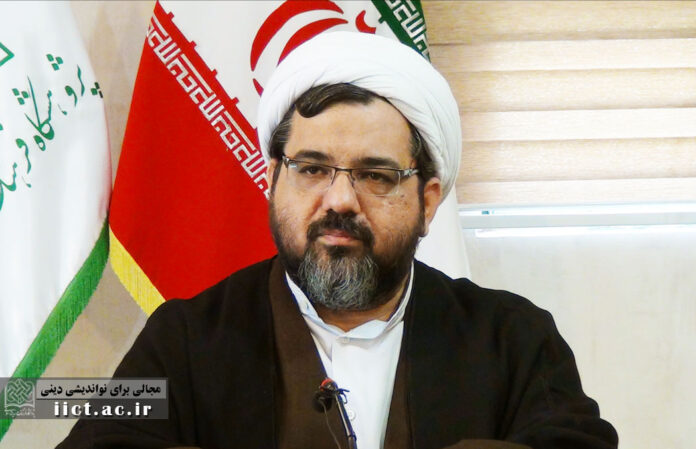Written by Hojjat-Al-Islam Dr. Masoud Esmaeili, Faculty Member of the Department of Cultural Studies at the Research Institute for Islamic Culture and Thought and Scientific Secretary of the National Conference on the Philosophy of Culture
In a general sense, the philosophy of culture is a discipline that engages in philosophical thinking about culture, its elements, and components, studying the existence and essence of culture. It contemplates the constituents of culture and the relationships between them. Thus, the philosophy of culture is a philosophical effort to understand and analyze the entity known as culture.
On the other hand, the critical aspect of the philosophy of culture links it to contemporary issues and transforms it into an endeavor for better living and cultural flourishing. Therefore, the philosophy of culture reflects on the foundational aspects of cultural entities such as science, religion, ethics, language, politics, art, and philosophy. Since humans, through language, religion, art, economy, political systems, technology, and science, are cultural beings, the philosophy of culture establishes a foundation for thinking about these matters in relation to one another and to humanity.
Furthermore, the philosophy of culture has a close relationship with past philosophies and intellectual systems. The connection of the philosophy of culture with previous philosophies and intellectual systems is that it relies on past philosophical and rational traditions, thereby interacting with all the sciences of cultural studies. In fact, when philosophically confronting culture, attention to philosophical traditions and various schools is essential, as no philosophy, regardless of its age, can be entirely devoid of reflections on culture. In reality, implicit meanings and the necessary potentials in philosophical texts must be explored to discuss the philosophy of culture. In other words, although the emergence of specific philosophies, such as the philosophy of culture, is the result of unique historical conditions, philosophical questions cannot be confined to a specific time. Philosophers strive, through deep reflection, to elevate issues from the ordinary level to the precise scientific level and from the historical and contemporary level to the trans-historical level. After finding answers, they apply them to the everyday and contemporary problems, offering practical solutions for these issues in specific contexts. Therefore, the problems of the philosophy of culture are both historical and conventional, but they also manifest at a deeper level, appearing as trans-historical and trans-conventional issues. Thus, any issue in the philosophy of culture, in this deeper layer, will be a problem for all past and future philosophies and the entire history, and therefore can be examined from the perspective of all philosophies and rational traditions (whether past or future).
Thus, the philosophy of culture is a discipline that, while having the capacity to cover all contemporary issues in a cultural domain, can also benefit from the intellectual capacities of both the past and present. From this perspective, the issue of “localizing” the philosophy of culture becomes very important. In fact, the philosophy of culture does not yet exist in an absolute sense. This is because, when we take a closer look at the history of cultural sciences, including the philosophy of culture, we see that these disciplines have always been formed within the context of specific local thoughts and different indigenous philosophies, where they were utilized and were effective. Although, from a trans-historical perspective, the issue of any philosophy, if it can be framed within the framework of other philosophies, will become an issue for all philosophies, it is clear that the special effectiveness and specific appropriateness of the philosophy of culture and other cultural sciences relative to a particular context can only be fully realized when it draws from the wellsprings of indigenous thought. In other words, as previously mentioned, the philosophy of culture, in addition to its purely intellectual aspect, has a completely practical dimension through which the current issues of a society, at the cultural level, are examined and resolved. This aspect requires that the philosophy of culture be necessarily organized in relation to the philosophy and rational sciences of a given culture. Since the most significant layer shaping the context of our society is religion, it is clear that any specific definition of its geography will primarily lead to its connection with Islam. Hence, the examination of the philosophy of culture with the background of indigenous rational tradition will first be an exploration of the philosophy of culture within the Islamic rational tradition.




